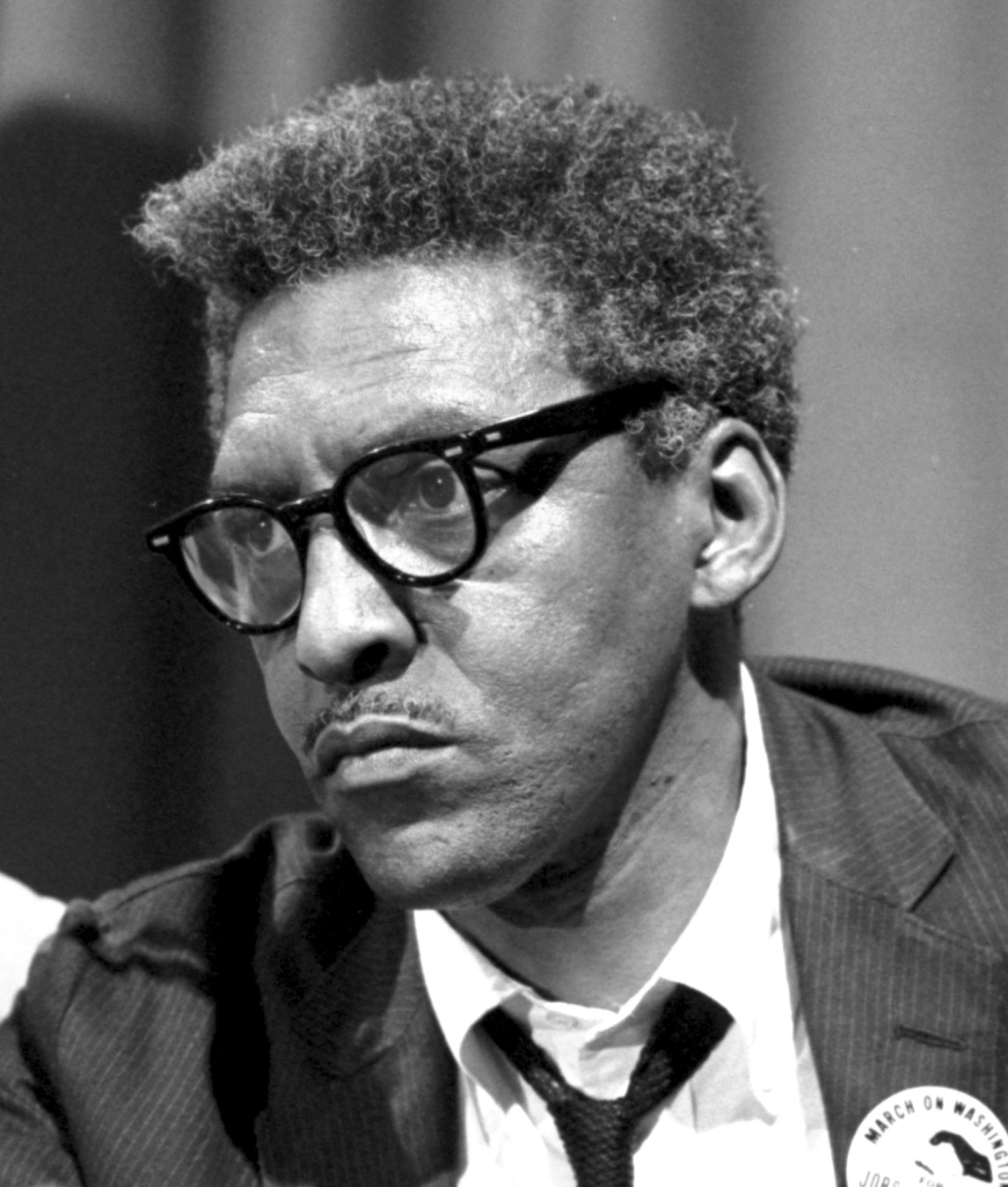Bayard Rustin – amerykański działacz ruchu praw obywatelskich, główny organizator Marszu na Waszyngton w 1963 roku. Doradca Martina Luthera Kinga w kwestiach związanych z biernym oporem.
W młodości Rustin był przez krótki okres związany z Komunistyczną Partią Stanów Zjednoczonych. Gdy w roku 1941 amerykańscy komuniści wstrzymali działania na rzecz praw ludności kolorowej, Rustin związał się z socjalistami o nastawieniu antykomunistycznym, przede wszystkim z przywódcą związkowym A. Philipem Randolphem i pacyfistycznym kaznodzieją A.J. Mustem. W latach 40. i 50. działał w ruchu antywojennym i antyrasistowskim. Rustin był otwarcie gejem, kilkakrotnie więziony za kontakty homoseksualne, odmowę służby w wojsku oraz łamanie ustaw segregacyjnych.
Od 1956 roku był bliskim współpracownikiem Martina Luthera Kinga. W 1963 roku zorganizował Marsz na Waszyngton pod hasłami podniesienia płacy minimalnej i zaprzestania segregacji rasowej.
W latach 60. współpracował z administracją prezydenta Lyndona Johnsona przy wprowadzaniu programu reform społecznych "Wielkie Społeczeństwo" , obejmującego m.in. walkę z ubóstwem, poprawę dostępu do edukacji i opieki medycznej, rozwój zapóźnionych terenów itp.
W latach 70. i 80. wspierał ruchy na rzecz praw człowieka, opowiadał się za solidarnością amerykańskich Murzynów z Izraelem, popierał publicznie ruch gejów i lesbijek.
W swojej działalności Rustin kierował się wizją pełnej integracji czarnych obywateli USA z amerykańskim społeczeństwem. Polemizował z separatyzmem Malcolma X i Czarnych Panter, stając się wczesnym krytykiem polityki tożsamości. Uważał, że równość rasową można osiągnąć dzięki reformom, przede wszystkim nastawionym na sprawiedliwość ekonomiczną.
Na podstawie jego biografii powstał w roku 2003 film dokumentalny Brother Outsider: The Life of Bayard Rustin , w reżyserii Nancy Kates i Bennet Singer.
Wikipedia
✵
17. Marzec 1912 – 24. Sierpień 1987
